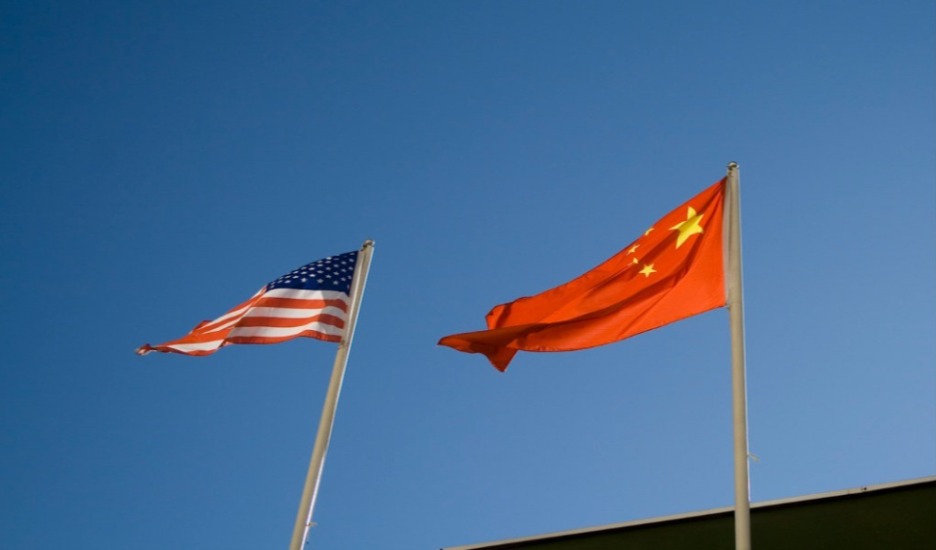The Middle East Ticker
UN Human Rights Council votes to adopt Gaza report: The report of the HRC’s “Independent Commission of Inquiry on the 2014 Gaza Conflict,” which Ben and Yishai discussed here, is highly focused on and critical of Israel’s conduct during last summer’s operations in Gaza.
Published by The Lawfare Institute
in Cooperation With

UN Human Rights Council votes to adopt Gaza report: The report of the HRC’s “Independent Commission of Inquiry on the 2014 Gaza Conflict,” which Ben and Yishai discussed here, is highly focused on and critical of Israel’s conduct during last summer’s operations in Gaza. Last Friday, the full Human Rights Council voted on a resolution to welcoming the report, calling for an ICC investigation, and castigating Israel for its alleged conduct and non-cooperation with the Commission. Forty-one countries (including all European members) voted in favor of the resolution and four countries abstained, while the United States, which has long objected to the Council’s singular focus on Israel, was the lone vote against. India’s abstention in particular has drawn attention, given its historical stance as a staunch backer of Palestinian efforts and recently expanding cooperation with Israel.
Israeli Supreme Court declines to stop sealing of slain terrorist’s room: In October, the shooting of Yehuda Glick, an activist, by an East Jerusalem Arab resident made international headlines as observers worried about an explosion of violence. Given Glick’s activism, the shooting also set off a debate about restrictions on Jewish prayer at the Temple Mount. In the shooting’s aftermath, Israeli security forces surrounded the house of suspect Mutaz Hijazi, but when Hijazi emerged with a gun, he was shot and killed. In accordance with a recently revived (and rarely used) policy of punitive demolitions, the Israeli government began proceedings to demolish Hijazi’s home. The Hijazi family filed suit with the Israel’s High Court which issued a stay demanding an explanation from the government as to why a demolition was lawful and proportionate---especially given Glick’s survival survived and that the Hijazi family had not known about the attack in advance. The security services then reevaluated and amended the demolition order to an order sealing the shooter’s room alone. The Hijazi family again appealed to the High Court which, given the “measured” nature of the amended order, rejected the appeal.
State Department narrows legislative mandate to fight boycotts of Israel: As part of a recently passed trade bill, Congress included language asserting that the US’ “principal negotiating objectives” include “discouraging” and “seeking the elimination” of attempts to boycott and sanction “Israel or persons doing business in Israel or in Israeli-controlled territories.” The reference to “Israeli-controlled territories” has drawn criticism from liberal groups who object to the equation of boycotts directed at pre-1967 Israel with boycotts directed at territory captured by from Jordan and Syria during the 1967 war. State Department spokesman John Kirby has indicated that U.S. negotiators will likely limit its defense to territory from the 1948-1967 period: “Every U.S. administration since 1967 – Democrat and Republican alike – has opposed Israeli settlement activity beyond the 1967 lines. This administration is no different. The U.S. government has never defended or supported Israeli settlements and activity associated with them and, by extension, does not pursue policies or activities that would legitimize them.” Given presidential discretion in trade negotiations, there is not much Congress can do to impose its view on the Executive.
Taliban leaders to meet with senior Afghan officials today to discuss possible end to Afghan war: According to the New York Times, Taliban leaders are meeting with “at least one senior Afghan official” in Islamabad, Pakistan, today, “in what the Afghan government hoped could be a step toward beginning negotiations to end the Afghan war.” The Times reports that “For years, it has been the Taliban’s position to refuse face-to-face meetings with the Afghan government, and the fact that representatives of both sides were meeting appeared to reflect a softening of that position.” American and Chinese representatives are expected to be present at the meeting as “observers.” However, it is unclear if today’s suicide attacks on a NATO military convoy in Kabul, Afghanistan, and a compound used by Afghanistan’s intelligence agency---both of which the Taliban claimed responsibility for, will affect the talks.
Several political parties in Egypt join journalist syndicate in its opposition to a new draft counterterrorism law set to be enacted by the Sisi regime: The Socialist Popular Alliance, the Wafd Party, and the Social Democratic Party have declared their support for the press syndicate---Egypt’s only state-sanctioned professional organization for journalists----in its opposition to the proposed law, which the syndicate claims will further erode press freedom in the country and bolster the government’s ability to censor the media. The Committee to Protect Journalists (CPJ) reports that the draft law includes an article that would impose a minimum of two years in prison on journalists convicted of publishing news about terrorist operations “that contradict official statements.” As reported by Ahram Online, the ultra-conservative Salafist Nour Party has recommended that the state take all the time necessary to research the law before passing it. “In a statement late on Monday, Egypt’s sole [legal] Islamist party stated that the party ‘understands the challenges that the state faces and the dangers of the terrorist operations targeting the state's stability.’ But the party also called on the government to take all the necessary time ‘to allow for dialogue’ and to ensure the law's constitutionality.” This new law comes on the heels of what is widely seen as an unprecedented crackdown on press freedoms in the country. According to CPJ’s Middle East and North Africa Program Coordinator, Sherif Mansour, “Journalists’ ability to report and investigate in Egypt is already severely hampered by security forces. If adopted, this law will mean that the only permissible narrative on certain stories is that of the state.”
Tunisian president declares nationwide “state of emergency” from July 4 to August 2, 2015: The declaration, which was made by President Beji Caid Essebsi in an address to the nation, comes in the wake of the June 26 terrorist attack on a hotel in Sousse that killed 38 and injured dozens of others. As reported by Tunis Afrique Presse:
Under Article 80 of the Constitution, the state of emergency is declared in case of imminent danger threatening institutions of the nation and the security and independence of the country and obstructing the proper functioning of the public authorities.
In this respect, "the President of the Republic may take measures required by this exceptional situation after consultation with the Prime Minister and the Speaker of the House of People's Representatives and after having informed the President of the Constitutional Court. He announces the measures in a statement to the people.These measures must aim to ensure the return without delay of the regular functioning of public authorities. During this period, the House of People's Representatives is considered in permanent meeting.
In this case, the President of the Republic cannot dissolve the House of People's Representatives and cannot submit a motion of no confidence against the government.
At any time, thirty days after the entry into force of these measures and at the request of the House of People's Representatives or thirty members of that House, the constitutional court is to verify whether the exceptional situation persists. The court decision is publicly issued within a period not exceeding fifteen days.
These measures cease to have effect as soon as circumstances that produced them end.
A Tunisian government minister also reportedly revealed today that “At least 8,000 homes have been searched and over 1,000 people detained in anti-terror sweeps since March’s deadly attack on Tunisia’s Bardo National Museum,” which killed 21 foreign tourists and a police officer. As the report notes, “Tunisia is widely seen as the sole success story of the wave of popular uprisings that swept across the Arab region in 2011.”
Many thanks to Adam Gerstenfeld for his help with this week's Ticker.



.jpg?sfvrsn=5a43131e_9)


